Year 5
The English curriculum is built around the three interrelated strands of language, literature and literacy. Teaching and learning programs should balance and integrate all three strands. Together, the strands focus on developing students' knowledge, understanding and skills in listening, reading, viewing, speaking, writing and creating. Learning in English builds on concepts, skills and processes developed in earlier years, and teachers will revisit and strengthen these as needed.
In Years 5 and 6, students communicate with peers and teachers from other classes and schools, community members, and individuals and groups, in a range of face-to-face and online/virtual environments.
Students engage with a variety of texts for enjoyment. They listen to, read, view, interpret and evaluate spoken, written and multimodal texts in which the primary purpose is aesthetic, as well as texts designed to inform and persuade. These include various types of media texts including newspapers, film and digital texts, junior and early adolescent novels, poetry, non-fiction and dramatic performances.
The range of literary texts for Foundation to Year 10 comprises Australian literature, including the oral narrative traditions of Aboriginal and Torres Strait Islander Peoples, as well as the contemporary literature of these two cultural groups, and classic and contemporary world literature, including texts from and about Asia.
Literary texts that support and extend students in Years 5 and 6 as independent readers describe complex sequences, a range of non-stereotypical characters and elaborated events including flashbacks and shifts in time. These texts explore themes of interpersonal relationships and ethical dilemmas within real-world and fantasy settings. Informative texts supply technical and content information about a wide range of topics of interest as well as topics being studied in other areas of the curriculum. Text structures include chapters, headings and subheadings, tables of contents, indexes and glossaries. Language features include complex sentences, unfamiliar technical vocabulary, figurative language, and information presented in various types of graphics.
Students create a range of imaginative, informative and persuasive types of texts including narratives, procedures, performances, reports, reviews, explanations and discussions.
(source: www.australiancurriculum.edu.au)
Achievement Standard
Receptive modes (listening, reading and viewing)
By the end of Year 5, students explain how text structures assist in understanding the text. They understand how language features, images and vocabulary influence interpretations of characters, settings and events.
When reading, they encounter and decode unfamiliar words using phonic, grammatical, semantic and contextual knowledge. They analyse and explain literal and implied information from a variety of texts. They describe how events, characters and settings in texts are depicted and explain their own responses to them. They listen and ask questions to clarify content.
Productive modes (speaking, writing and creating)
Students use language features to show how ideas can be extended. They develop and explain a point of view about a text, selecting information, ideas and images from a range of resources.
Students create imaginative, informative and persuasive texts for different purposes and audiences. They make presentations which include multimodal elements for defined purposes. They contribute actively to class and group discussions, taking into account other perspectives. When writing, they demonstrate understanding of grammar using a variety of sentence types. They select specific vocabulary and use accurate spelling and punctuation. They edit their work for cohesive structure and meaning.
(source: www.australiancurriculum.edu.au)
- Plus Plan

Queensland Cursive Entries and Exits Spaceship - Red
A set of 12 Queensland Cursive entry and exit shuttles to join together to make a handwriting spaceship.
- Plus Plan
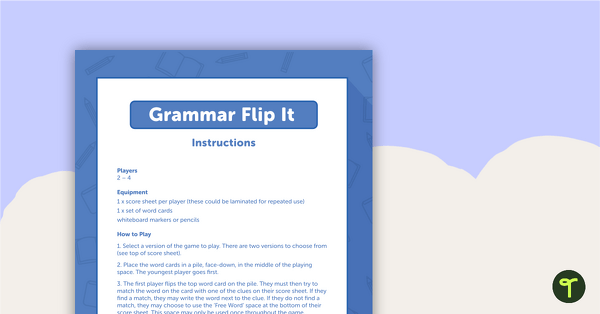
Verb Grammar Card Game – Flip It!
A fun game for students to play in small groups to consolidate their understanding of verbs.
- Plus Plan
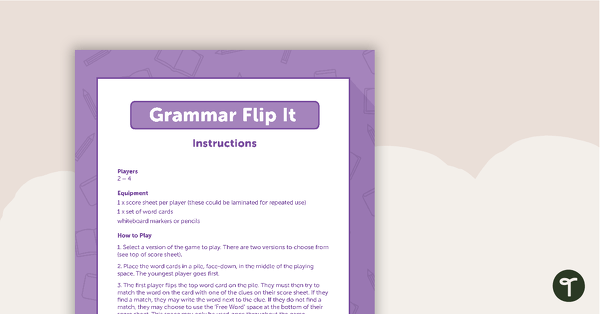
Adverb Grammar Card Game – Flip It!
A fun game for students to play in small groups to consolidate their understanding of adverbs.
- Free Plan
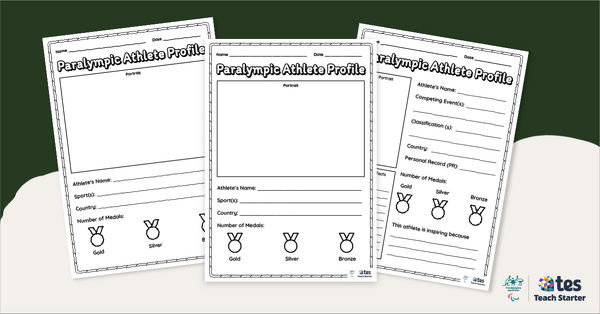
Paralympic Athlete Profile Template
Get your students excited about their favourite para-athletes with our Paralympic Athlete Profile Template.
- Plus Plan
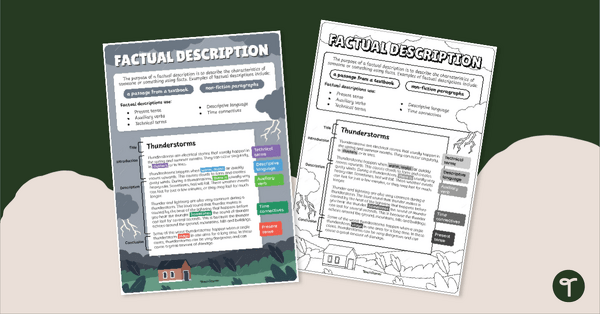
Factual Description Text Type Poster With Annotations
Display this factual description with annotations to help students identify the structure of this type of text.
- Plus Plan
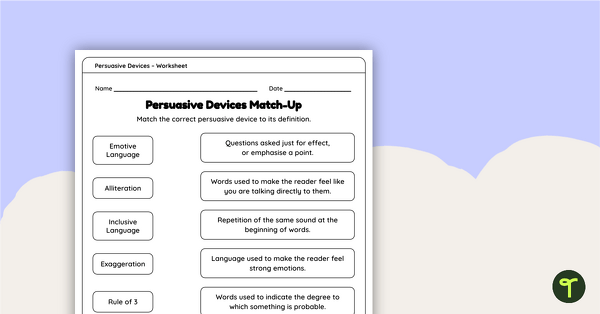
Persuasive Device Definitions – Match-Up Worksheet
Have students match the persuasive devices with their definitions using this simple one-page worksheet.
- Plus Plan
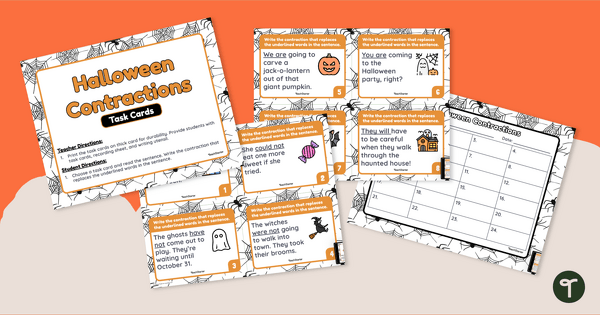
Halloween Contractions Activity - SCOOT! Card Game
Identify contractions and the words they replace with a printable Halloween Contractions Activity for Year 2.
- Plus Plan
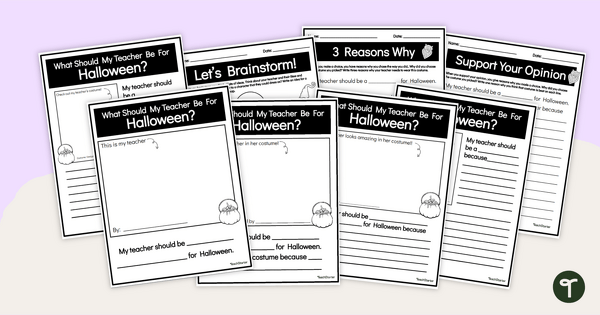
What Should My Teacher Be For Halloween? Writing Activity Pack
Have your students decide and write about what costume the teacher should wear on Halloween with a differentiated Halloween writing activity.
- Plus Plan
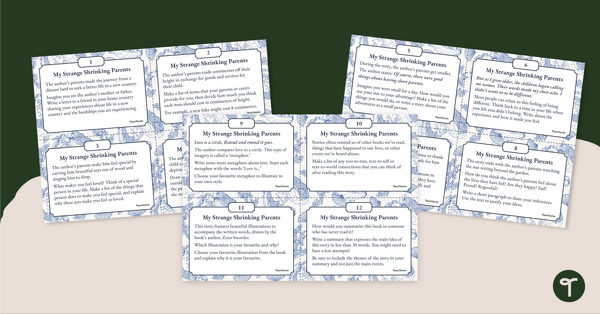
My Strange Shrinking Parents – Literature Task Cards
Deep dive into the characters and themes of Zeno Sworder’s highly acclaimed book, My Strange Shrinking Parents, with this set of 12 literature task cards.
- Plus Plan
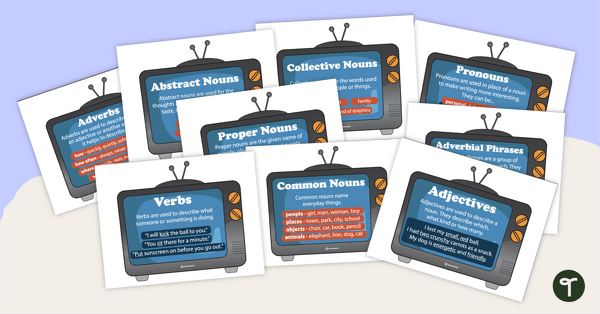
Grammar TVs
Grammar presented on TVs.
- Plus Plan
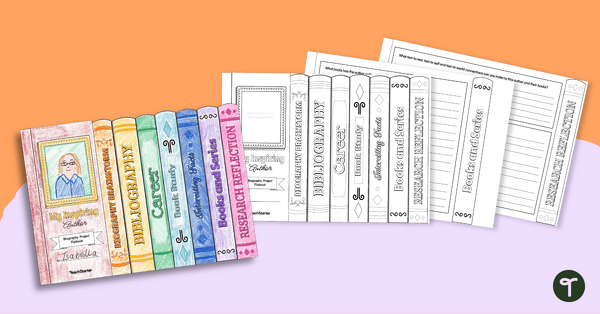
Inspiring Author Flipbook
Research and celebrate an inspiring author with this hands-on flipbook.
- Plus Plan
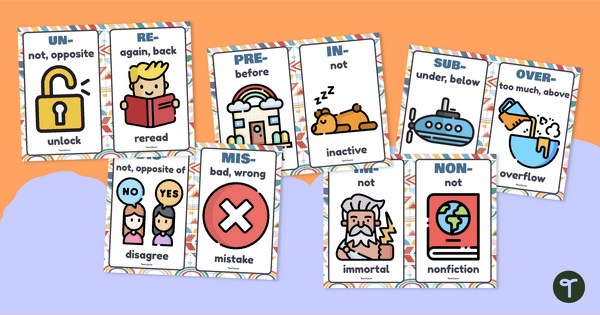
Mini Anchor Charts - Prefixes
Give your students a visual reminder of the meanings of 36 different prefixes with a printable set of miniature prefix anchor charts.
- Plus Plan
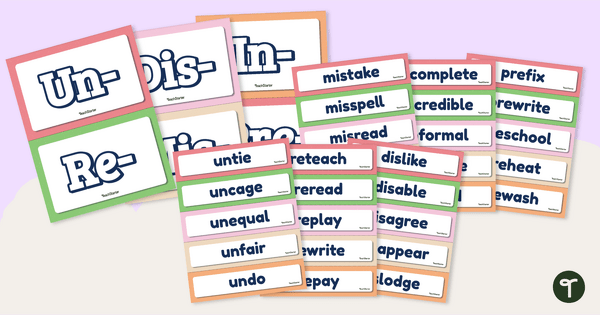
Prefix Words - Classroom Display
Build a classroom word wall and boost vocabulary skills with a printable prefix classroom display.
- Plus Plan
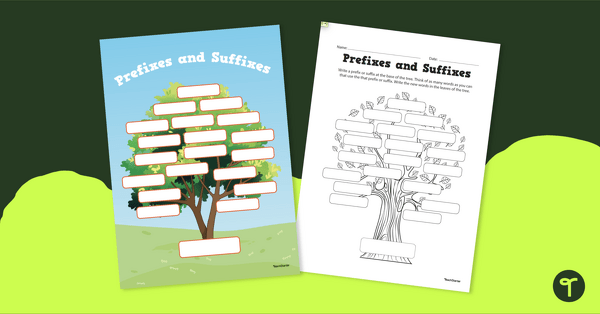
Affix Word Tree - Poster & Worksheet
Encourage vocabulary development with printable affix word tree anchor chart and worksheet
- Plus Plan
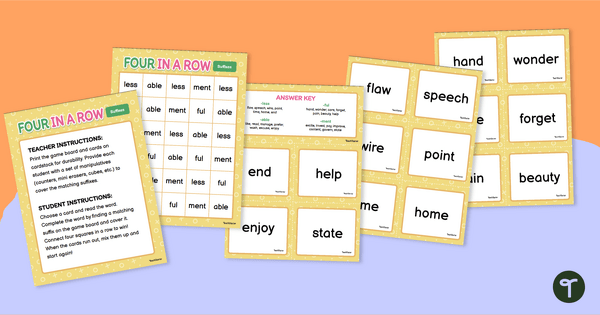
Four in a Row Vocabulary Game - Suffixes
Practise matching words to their common suffixes and build vocabulary with a suffix vocabulary game.
- Plus Plan
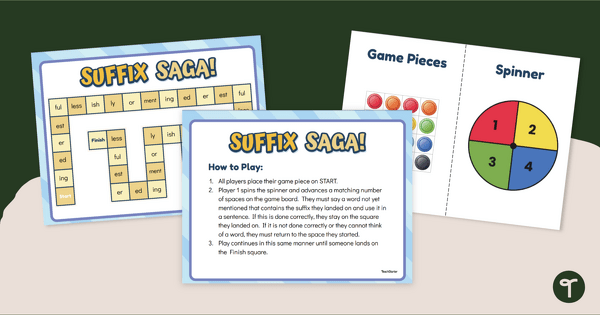
Suffix Saga - Vocabulary Game
Practise building and using words with common suffixes with a fun vocabulary game!
- Plus Plan
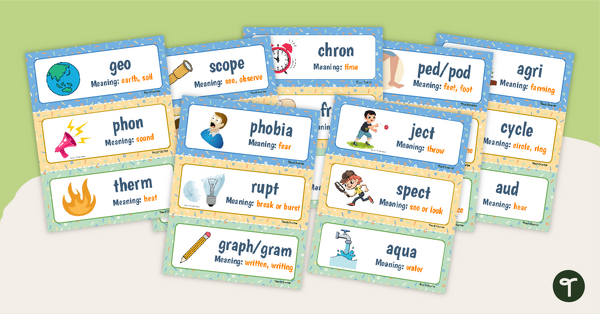
Greek and Latin Root Words - Illustrated Word Wall
Use word wall displays to build student vocabulary with daily exposure to Greek and Latin root words.
- Plus Plan
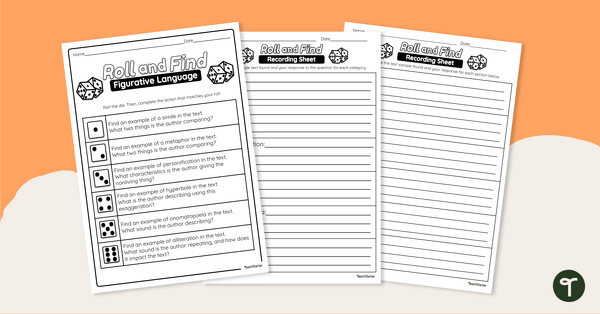
Roll and Find – Figurative Language Worksheet
Explore, identify and interpret figurative language with this engaging roll and find activity.
- Plus Plan
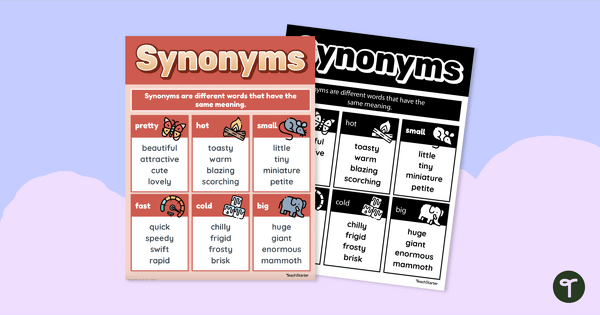
Synonym Poster
Boost vocabulary with a printable Synonym Anchor Chart.
- Plus Plan
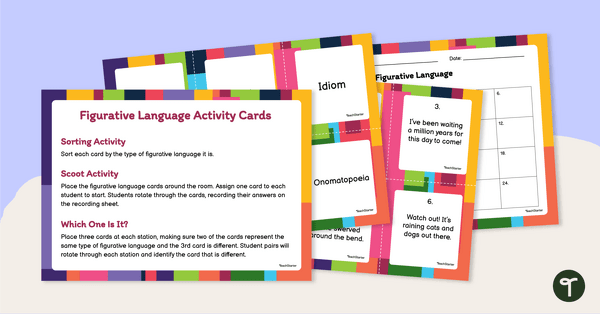
Figurative Language - SCOOT! Task Cards
Explore figurative language in multiple ways with the set of 24 task cards.
- Plus Plan
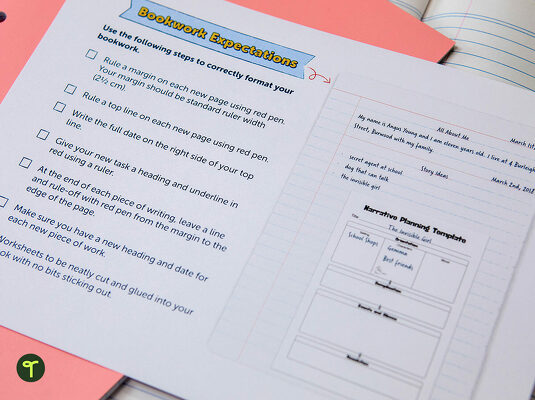
Literacy Bookwork Expectations Posters
A checklist for students to refer to when displaying literacy bookwork. There are low colour and black and white versions, plus editable versions in case you need to add your own expectations.
- Plus Plan
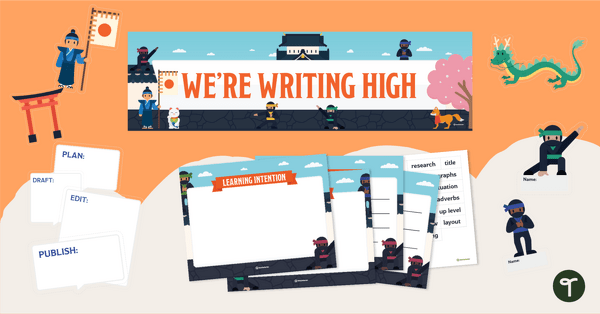
Writing Ninjas Bump it Up Data Wall Display
A ninja themed Bump It Up Wall for writing to display in your classroom.
- Plus Plan
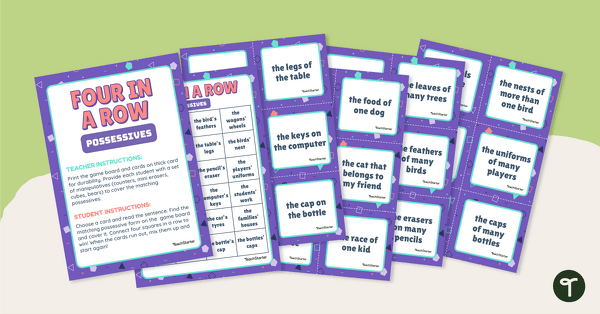
Possessive Nouns - Four in a Row Game
Practise using the correct forms of possessive nouns with an exciting game of Four-in-a-Row!
- Plus Plan
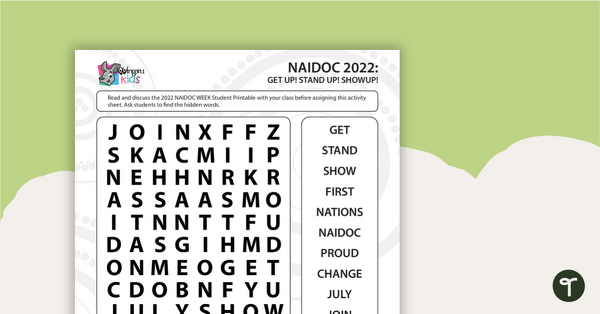
NAIDOC Week 2022 Find-a-Word – Lower Years
A lower-years find-a-word puzzle emphasising topic words from information sheet about the NAIDOC 2022 theme: “Get Up! Stand Up! Show Up!”
- Plus Plan
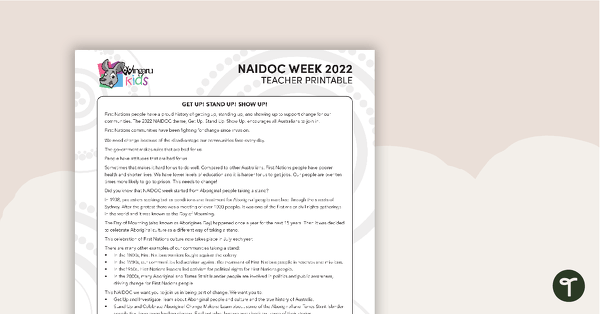
NAIDOC Week 2022 – Teacher Information Sheet
A teacher information sheet about the NAIDOC 2022 theme: “Get Up! Stand Up! Show Up!”
- Plus Plan
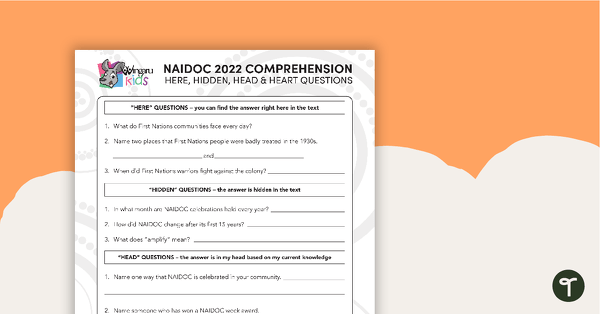
NAIDOC Week 2022 Comprehension Activity
A worksheet with text and comprehension questions exploring the 2022 NAIDOC theme.
- Plus Plan
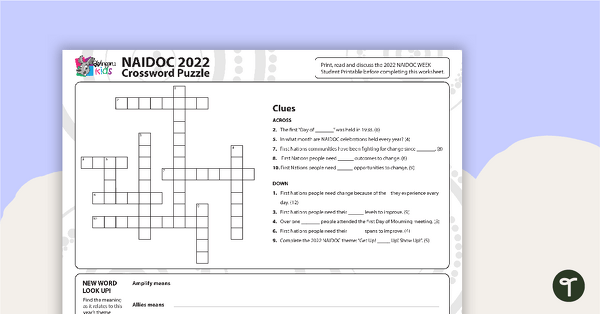
NAIDOC Week 2022 Crossword Puzzle
A student crossword puzzle based on the information sheet about the NAIDOC 2022 theme: “Get Up! Stand Up! Show Up!”
- Plus Plan
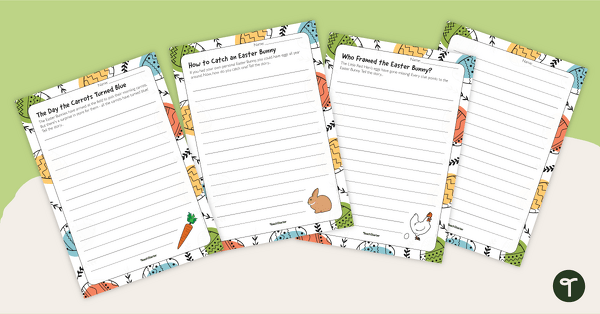
Easter Writing Prompts Worksheet
Explore imaginative writing in your classroom with these 3 fun story writing prompts for Easter.
- Plus Plan
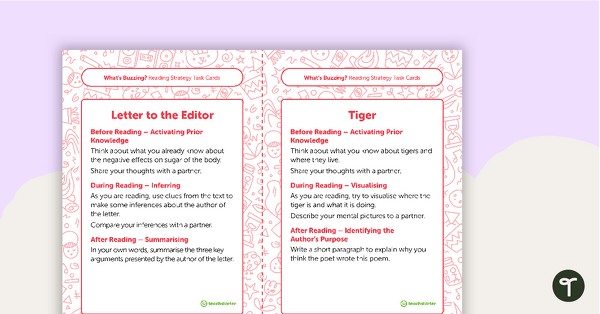
Year 5 Magazine – "What's Buzzing?" (Issue 3) Task Cards
A set of five literacy rotation task cards to be used in conjunction with Issue 3 of Teach Starter’s Year 5 magazine.
- Plus Plan
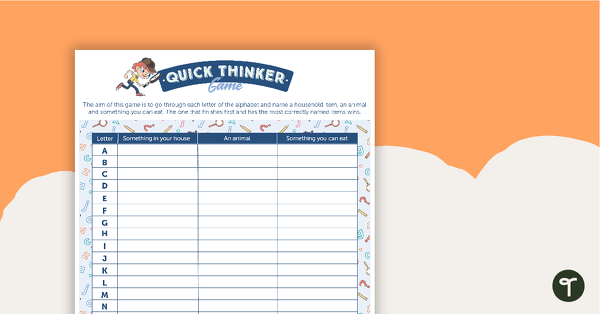
Quick Thinker Game – Worksheet
An alphabet racing game to help prompt vocabulary knowledge.
- Plus Plan
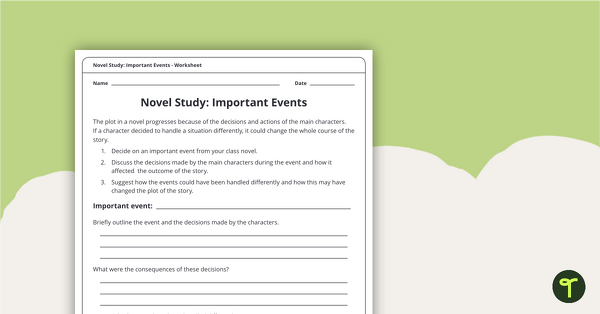
Novel Study – Important Events Worksheet
A worksheet for students to explore how decision making in a story changes the course of the plot.
- Plus Plan
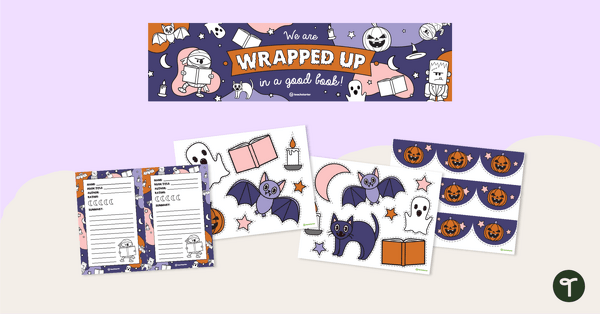
Halloween Display – Wrapped Up in a Good Book
Download a printable Halloween bulletin board set for your classroom library or school library. Showcase your students’ insightful book reviews with our Halloween-themed classroom display.